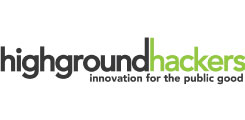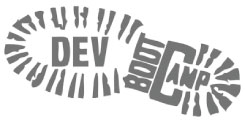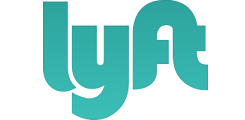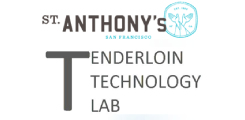Reallocate and [freespace] are two non-profits made up almost entirely of Burners, and we’re proud supporters of both of them. These are Burners with civic responsibility, gifting their time and energy to do good, using their blessings to help others.


We’ve covered some of their activities before:
[Temporary Autonomous Zone] – Proof the Model Still Works
Civic Responsibility Hacks the White House
Reallocate and Burning Man in Fast Company
Hack for Good for Christmas
Lately there has been a lot of talk in San Francisco about the tech industry moving out of Silicon Valley’s leafy suburbs and into the hustle and bustle of the city. San Francisco has the second highest income inequality in the United States. This divide between rich and poor is nothing new, the same debate went on in the 80’s. Some techies, though, don’t want to just sit back and watch an argument. They want to use their skills and talents to contribute to making the world a better place. You don’t have to be a Burner to get involved in helping, but many of the helpers are Burners, and many Burners do want to help.
At the end of this month, Reallocate is hosting a weekend-long Hacktivation for the Homeless, at [freespace]’s new location.
-
HACKtivation for the Homeless
Hack with Purpose on March 28th-30th, 2014. Join the HACKtivation and use your skills to address homelessness in San Francisco.
Bring your skills and help your neighbors
HACKtivation for the Homeless is an opportunity to join partners from the public, private and nonprofit sectors to collaborate on civic issues and address homelessness. This is just the beginning of a series of events for ongoing civic participation to create lasting impact and build a stronger San Francisco together.
HACKtivations are NOT just for developers. If you want to help make San Francisco better, this is the event for you!
Join
for 3 days of fun, hacking and learning.
These events are a chance to do good personally, but also to meet other people on your wavelength. So far Reallocate’s Hacktivations have attracted some very smart, talented, and positive people.
[freespace] is blowing up right now with events all around the world, such as a recent one tied to Paris Fashion Week.
Creativity, fashion and good energies in a very playfull and multicultural atmosphere. That’s how I’d describe the Freespace fashion event of yesterday night. Several designers took part in a fashion show in a very relax state of mind, unveiling inovating and funny pieces in a unique place
They just got a grant from the San Francisco Mayor’s office, and are opening a new space in the Tenderloin.
In a short amount of time, both Burner-supported charities have been able to start from nothing and do a remarkable amount of good. The Burner ethos of gifting time and attention, sharing skills, being playful and making it fun, and inclusivity to those who want to contribute, are all fundamental parts of their success.
Reallocate is adding new members every day, putting on regular Hacktivation events, and building an online collaboration platform to accelerate social entrepreneurs. Membership is only $5 (a tax deductible donation), and is open to anyone who thinks they have skills and ideas to contribute to solving society’s problems and helping other charities with technology.
Burning Man, and any other non-profits who are interested, would do well to use Reallocate’s (free, open source) platform, rather than trying to build their own proprietary masterpiece. If you’re interested in this email Kyle Stewart.
Shareable has just published an excellent interview with Reallocate’s Executive Director and [freespace] founder Kyle Stewart, and [freespace] co-founder Ilana Ipsett.
Top image credit: michael+yan / Foter.
Supporting the needs of San Francisco’s homeless population has been a constant challenge for decades. There are thousands of volunteers and scores of nonprofit organizations dedicated to addressing the problem, but a disparate ad-hoc network of support means that large gaps in service continue to exist.
Meanwhile, the growing disconnect between the city’s new wave of well-paid tech workers and its more vulnerable residents is most profound when it comes to San Francisco’s homeless population. Last year, a Facebook post by AngelHack CEO Greg Gopman further exacerbated the tension when he wrote that the homeless “act like hyenas” and that “in other cosmopolitan cities, the lower part of society keeps to themselves…They realize it’s a privilege to be in the civilized part of town and view themselves as guests.”
Recognizing that many people who work in the tech industry don’t share Gopman’s views and that thousands of people across the city would like to contribute to finding solutions, the San Francisco nonprofit ReAllocate is organizing a HACKtivation for the Homeless event on the last weekend in March to connect existing nonprofits with new solutions to their challenges and the resources necessary to implement them.
Shareable had a chance to ask the organizers, Kyle Stewart and Ilana Lipsett, about the upcoming HACKtivation.
Please introduce yourself for our readers and tell us a little bit about who you are?
Kyle Stewart: I am the Executive Director of ReAllocate and a cofounder of [freespace]. My background is in operations, logistics, and supply chain management with a degree in marketing from the University of Colorado. I’ve been in San Francisco for two-and-a-half years and moved here to run the customer service division for a small software company. After a few different tech jobs, I found myself volunteering with ReAllocate and realized that I wanted to be doing more meaningful work. It’s been a trial by fire and a lot of fun connecting with and helping to build a community of supporters who are using their skills for good.
Ilana Lipsett: I’m a Bay Area native and have been working in the mid-market community since 2010. I’ve worked with nonprofits, tech companies, and the city of San Francisco to bring people together to make the community stronger through events, pop-ups, and [freespace], a community cultural and arts center I co-founded with Kyle and handful of other engaged organizers.
What is ReAllocate and what has your organization done previously
KS: ReAllocate helps nonprofits and social entrepreneurs connect with volunteers, mentors, and resources to turn their ideas into reality. Our past projects include the ReAllocate Online Platform, Hactivations, and [freespace]. Early on in our history, ReAllocate was working on hardware technology-focused projects including the creation of a new bracing system to treat kids with a clubfoot and a mentorship program called “Printing the Future” that helped at-risk high school girls learn the print-making process and create prints of their own.
Most of us probably know what a hackathon is — a sort of marathon session that started with programmers cramming to develop software solutions that has since been applied outside of software development — but what is a hacktivation?
IL: Hackathons are great for getting people together working on solutions for a defined amount of time, but historically there is little follow-through for the projects that get started.
KS: Hacktivations work with established nonprofits and social impact projects, before the event, to identify their needs. The ideas come from the community we are serving (in this case, the nonprofits that already serve the homeless) and projects are presenting real challenges so that teams have the best opportunity to create real solutions.
IL: In fact, [freespace] was inspired by the National Day of Civic Hacking, a nationally sponsored hackathon in June 2013, when its organizers saw the value in providing a longer runway (and physical space) for projects to manifest. The idea behind a hacktivation is to “activate” participants and encourage longer commitment to a project and issue that is addressed during the weekend.
KS: We recognize that hackathons do not create change themselves. It’s the sustained efforts of people working together for long-term solutions that will have an impact and we are committed to helping select teams that come out of the HACKtivation continue to develop their projects.

HACKtivation kick-off and planning event at [freespace]. Photo credit: Josh Wolf.
KS: Past events have been more broadly focused on social impact and taken place over one day instead of three. Even with a shorter period of time, we have seen mobile app prototypes built to process payments for an alternative currency called Bay Bucks; built a new parallax website for Stop the Pity; and built, launched, and funded a crowdfunding campaign for two returning female veterans with homefrontfan. More than 2,000 hours of skilled volunteers’ services have been provided to 21 different social impact projects.
Why homelessness?
KS: While running the last HACKtivation in December, my Facebook wall started exploding with some poorly thought-out comments about the homeless people in San Francisco. The conversation focused around tech workers and tech employees not doing enough to address homelessness and poverty in Mid-Market. At the HACKtivation, I was surrounded by coders and designers who were using their skills to help each other. Rather than placing blame and fueling the fire, we set off to do what we can to help.
IL: We thought we could bring people together to do something about it. We saw, with [freespace], that bringing together people from different backgrounds is conducive to finding new solutions. We saw homeless and formerly homeless people coming into [freespace] literally rubbing shoulders with tech workers, and saw the positive impact that could have — on both groups of people.
Is homelessness really a problem that’s lacking adequate creative solutions? Or is there simply a lack of adequate funding to address the problem?
IL: I think the answer is yes to both. We want to acknowledge that there are organizations who are doing incredible things for the community — all of our partners have been around for years providing vital services to the homeless community. And they need to keep doing what they are doing! At the same time, there are new opportunities that tech and non-tech present that can address homelessness from a different angle. For example, our good friend Marc Roth, who is formerly homeless, is starting a program to teach homeless individuals skills in the maker movement. That was what got him out of homelessness.
KS: More funding for these organizations to grow their capacity and hire new staff will always be helpful. Many have seen their budgets cut over the years and are trying to address growing challenges with less resources. We want to help bring in new energy and ideas. Creative solutions come with creative people and it’s those people getting involved that can have impact in new ways. Homelessness and poverty are not technology problems, they are people problems. Caring people participating in civic issues can make an impact.
IL: We are not going to try to make the argument that tech can solve homelessness; it can’t. But if tech (or marketing or social media help) can get a nonprofit from serving 50 clients per day to 500 clients per day because they are that much more efficient, that’s a huge step in the right direction.
There are many organizations in San Francisco that have been providing vital services to the homeless for longer than any of us have been alive? Can you describe how receptive these organizations were to your proposal and whether some organizations responded different from others?
KS: The response has been mostly positive and the kickoff meeting on February 13 really showed the level of excitement that is being shared by the partners who have signed up to participate. There are opportunities for technology to help inside these established organizations and between the different groups with similar missions.
IL: Based on the work we’ve done in the past, we had existing relationships with many of the organizations who are partnering with us, so they were very receptive to us and to this idea. With all the tech companies moving in — regardless of if they have a community benefits agreement — everyone is trying to figure out how this new ecosystem of companies, people, and nonprofits will work. Given that we kind of straddle all the worlds, we are in a unique position of being able to reach tech, nonprofits, and the government. We don’t work in tech, and we also understand that tech won’t solve everything. But we do see the importance of people talking to each other, and in providing avenues and venues for them to do so. We don’t have the answers. Going in with that humility and respect for what existing organizations are doing has opened many doors. We are more about connecting people to potential resources than we are about telling them what they should do.

HACKtivation kick-off and planning event at [freespace]. Photo credit: Josh Wolf.
KS: I wish it were a joke. I know people who take a taxi three blocks down market from the bus stop to their office so they “do not have to see homeless people.”
IL: These tensions are rooted in real, deep-seeded issues about growing inequality in our city, and are manifesting in conversations about who “deserves” to be here. I think a big problem is that, for the most part, people on different sides of the debate are talking at each other, but not necessarily with each other. When they do come into contact, it’s at a point when tensions have already escalated. We want to offer a space that is comfortable to all sides, neutral, and also productive, so that people can come together, share their stories and passions, get to know each other as humans, and then start to work toward solutions.
It’s clear that there are many people in the tech community who honestly care about improving the lives of our most vulnerable, but others have suggested that those who can’t afford to live here should just leave and that the homeless should stay outside of downtown and remain invisible. How will you differentiate between solutions to help the homeless versus solutions to help diminish their impact on the rest of the city?
KS: There are so many faces of homelessness that people never see. We want people to get involved and learn what homelessness really looks like, how they can help, and who they are helping. We are providing opportunities for people to get closer to the issues not to hide behind technology.
IL: By pairing volunteers directly with nonprofits who are working on solutions to help the homeless, we are ensuring that people will be working on projects that will positively impact the lives of homeless individuals. We are working with our nonprofit partners leading up to the event itself to help identify their challenges, so that the solutions participants work on will be actionable and relevant.
What do you hope to accomplish with the upcoming HACKtivation?
KS: The HACKtivation is a starting point for ongoing civic participation. We want people to come to the event with an open mind and work on projects that address the needs of the nonprofits that already serve the homeless. We want people to learn what homelessness really looks like and show them ways they can improve peoples lives.
IL: We want this to be the first of ongoing conversations between the tech world and the rest of the city, introducing people to each other as fellow humans with a common interest in making this city livable and better! We are partnering with the Mayor’s Office of Civic Innovation which is working on facilitating ongoing collaboration between companies and nonprofits, and we want to show how this can be done — that there is a way for companies to engage in their communities that is positive and constructive. We believe there are, as you said, many people in the tech community who do care about the rest of the city, and we want to provide them with opportunities to get involved. We also want to make sure that our nonprofit partners get results to the challenges they articulate. Last, we want to help facilitate ongoing conversation between the nonprofits themselves. Sometimes a solution can be found in an allied organization who you didn’t know existed or what they did.
Register for the upcoming event here.
Help others find Burners.Me
Like this:
Like Loading...
























